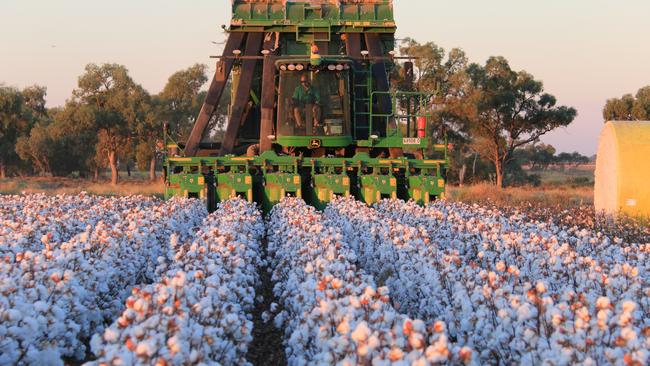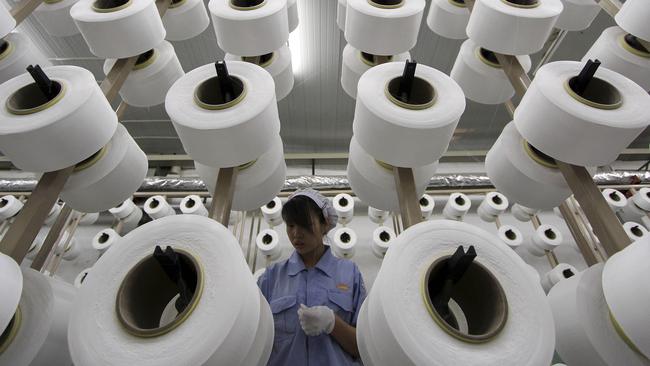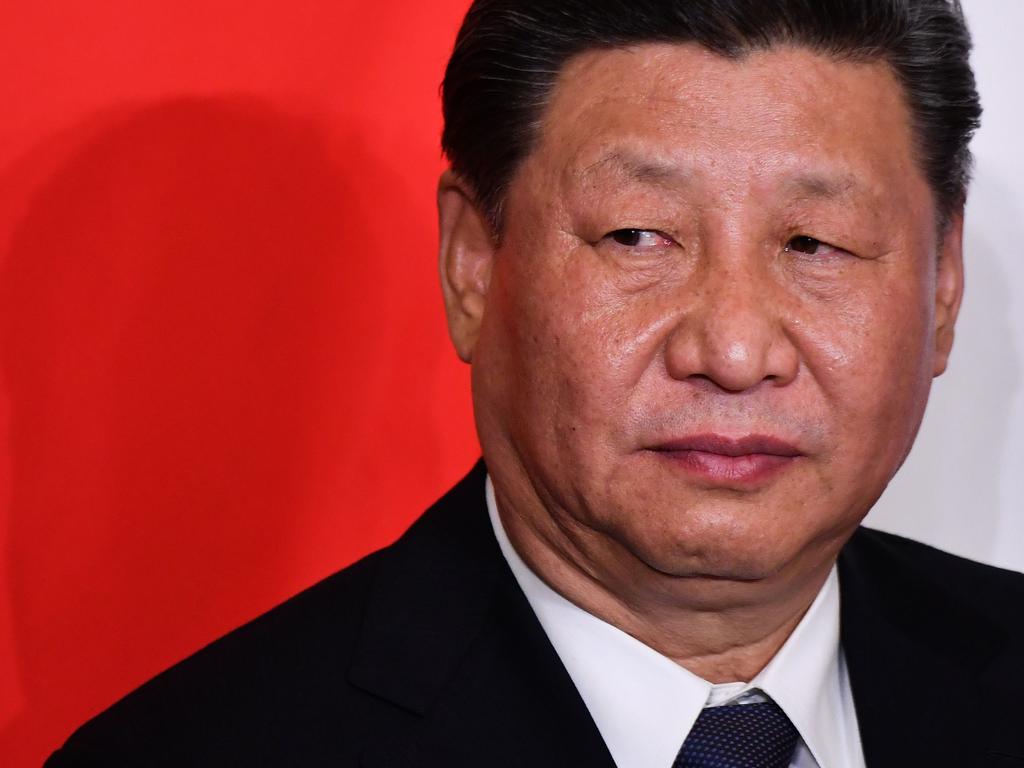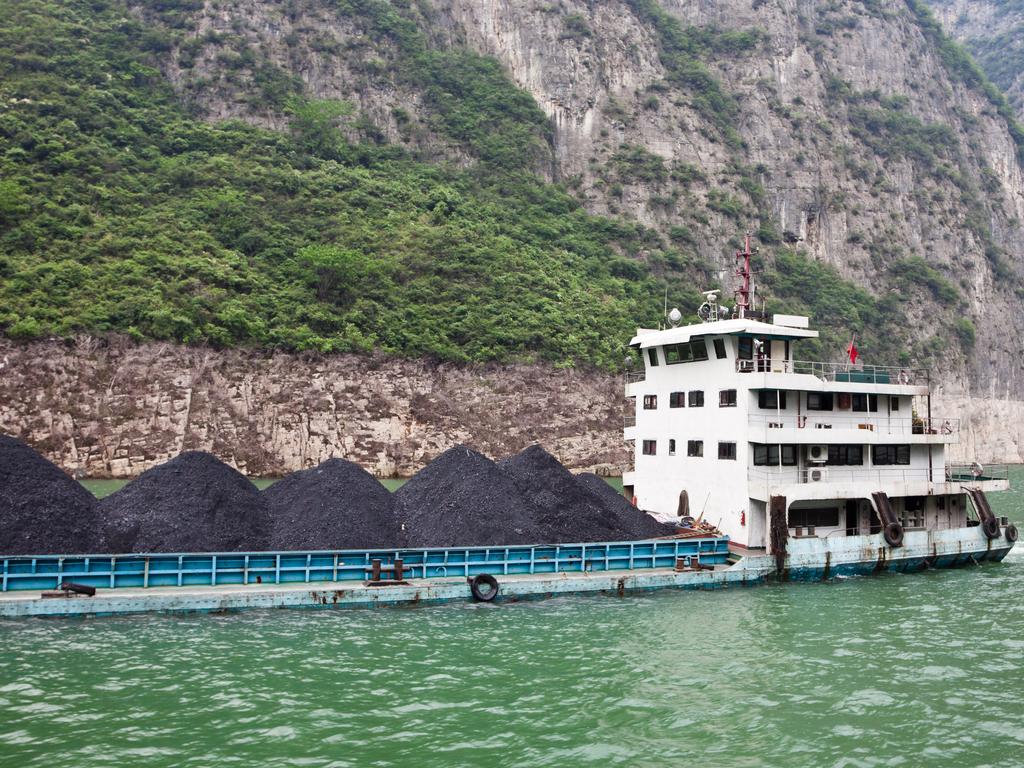Cotton exports may be next victim of China tensions
Australia issues warning to Beijing as growers scramble to understand why Chinese mills are being urged not to use our cotton.

Two years after the federal government forced Chinese textile giant Shandong Ruyi to sell down its stake in Australia’s biggest cotton farm, Beijing is now urging its spinning mills not to use Australian cotton as it fires its latest shot in its trade skirmish with Canberra.
In 2012, the Canberra approved Shandong Ruyi’s $232 million purchase of an 80 per cent share in Cubbie Station in Queensland – the biggest irrigation property in the southern hemisphere – provided it cut its stake to 51 per cent within three years.
It took an extra four years for Shandong Ruyi to sell down its stake after Treasurer Josh Frydenberg gave it more time to wrap up a sale. And now, the Chinese company owns the 93,000 hectare property with a Macquarie Group fund owning the remaining 49 per cent.
But like other cotton growers, Cubbie is scrambling to find alternative markets to Chinese authorities ratcheted up its campaign against Australian products, which hit barley, beef and possibly wine and thermal coal exports.
Cotton Australia chief executive Adam Kay and chairman Michael O’Rielley confirmed on Friday that cotton has become the latest victim of the People’s Republic of China.
“It has become clear to our industry that the National Development Reform Commission in China has recently been discouraging their country’s spinning mills from using Australian cotton,” Cotton Australia’s Mr Kay and Mr O’Rielley said in a joint statement.
“Our industry is working with the Australian Government, including the trade and agriculture ministers’ offices, to investigate the situation and fully understand what is going on.”
Trade Minister Simon Birmingham warned China against taking “discriminatory actions” against Australian cotton suppliers, saying the government would treat any unauthorised trade ban “very seriously”.
He said the government was working closely with the cotton industry to clarify the situation.
“Impeding the ability of producers to compete on a level-playing field could constitute a potential breach of China’s international undertakings, which would be taken very seriously by Australia,” Senator Birmingham said.
“Our cotton exporters have worked hard to win contracts and establish themselves as reliable suppliers of high quality cotton in the Chinese market, which is an important input for many Chinese businesses.”
It comes days after it was revealed Australian coal miners could be forced to sell “distressed” cargoes at a discount as China looks to restrict imports of both thermal and coking coal.
Meanwhile, Australian wine producers are bracing for tariffs to being imposed by Beijing within days, following a September announcement of a crackdown on dumping. At the same time Australian barley industry is still reeling from the imposition of tariffs of 80 per cent in May which effectively killed its $1.2bn export market.
‘Please respect us’
Agriculture Minister David Littleproud, who like Senator Birmingham has been unable to speak to his Chinese counterpart to discuss recent trade tensions, urged China to treat Australia fairly and with respect.
“You can only resolve differences by having your hand out and being prepared to have that conversation,” he said. “We are showing leadership as an Australian government and are prepared to have that conversation and to have that dialogue.
“We are a good global citizen and we will continue to do that, we just asked to be respected in return and listen to, so that any misunderstanding can be explained.”
Australian cotton exports to China were worth nearly $900m in financial year 2019, the market peaked at nearly $2bn earlier this decade.
Unlike barley - which China slapped with 80 per cent tariffs after an anti-dumping investigation before banning the grains exports from Perth’s CBH after claiming “harmful weeds” were detected in shipments - no reason has been given why Beijing is trying to discourage the use of Australian cotton.
However ominous signs of Australian cotton’s decline in Chinese market emerged as early as September 2019, according to Chinese industry intelligence.
Figures by China Cotton Textile Website (TTEB) show the proportion of China’s cotton imports from Australia has declined on a monthly basis, dropping significantly from 49 per cent in September 2019 to only 6 per cent in July this year, and has been fluctuated between 3 per cent and 7 per cent in the last six months.
Too expensive?
According to an analysis on CNCOTTON.Com published in May, anonymous traders and textile businesses said the price of Australian cotton was “too high” and much higher than US and Brazil cotton, making it less competitive.
“On the other hand, affected by the large-scale cancellation or suspension of direct and indirect export orders (of textile products), unless buyer or brands explicitly require the use of premium-quality Australian cotton, manufacturers will replace it by Xinjiang, Brazilian or US cotton,” said the website run by China National Cotton Information Center (CNCIC), a government funded non-profit professional cotton information service provider.
“Considering the recent deterioration in Australia-China relations, whether China will impose anti-dumping duties on Australian barley by then is worthy of attention. Although cotton is not in the scope of the investigation and Australian cotton production is low this year, in the long run, this will be a warning to Australian cotton exports,” said the article, published before Australian barley was tariffed.
Although there has been no official announcement, an influential commercial analyst flagged on Chinese social media that textile factories had received notifications in the first week of October to stop using quota to get Australian cottons, leading to a scramble to get shipping stocks in the ports.
Other reasons cited by Chinese market analysts as possibly affecting the purchase of Australian cotton include increasing procurement from the US between May to October to implement the first stage of China-US trade deal, buyers’ concerns of quality of SM, GM grade cottons that could be affected by weather conditions in southern New South Sales, and lower-than-expected demands of premium cottons in general due to the COVID downturn.

Earlier this year China’s ambassador to Australia threatened a boycott of Australian goods following Prime Minister Scott Morrison’s push for an inquiry into the origins of the COVID-19 outbreak.
Australia’s foreign interference legislation and proposed foreign relations bills has also angered China’s communist regime.
But cotton growers are puzzled why they have been caught in the crossfire.
“The Australian cotton industry has earned a reputation as a reliable international supplier of cotton with fast shipping times to export destinations and reliable delivery,” Mr Kay and Mr O’Rielley said.
“Our crop is in strong demand internationally and can attract a price premium due to its high quality, excellent sustainability credentials, reliability and a proven track record in meeting manufacturer and consumer needs, including in China.
“Our industry’s relationship with China is of importance to us and is a relationship we have long valued and respected. To now learn of these changes for Australian cotton exports to China is disappointing, particularly after we have enjoyed such a mutually beneficial relationship with the country over many years.”
Australia is the world’s third-largest exporter of cotton behind the USA and India, with cotton exported through ports in Brisbane, Sydney and Melbourne.
In 2018, the main markets for Australian cotton were China, Vietnam, Bangladesh and India, with the annual average seed exports valued at $107.4m in the past five years.
Despite China discouraging the use of Australian cotton, Mr Kay and Mr O’Rielley were confident they’d be able to find alternative markets. But the pair said they would also continue to seek clarity and a resolution with China.
“We know Australian cotton will find a home in the international market. The Australian cotton industry has long enjoyed positive relationships with the many other countries we export to, and we look forward to continuing and developing those other relationships further.
“The Australian cotton industry will continue having meaningful conversations with stakeholders to fully understand this situation, and we will continue working with the Australian government to respectfully and meaningfully engage with China to find a resolution.”
With Ben Packham





